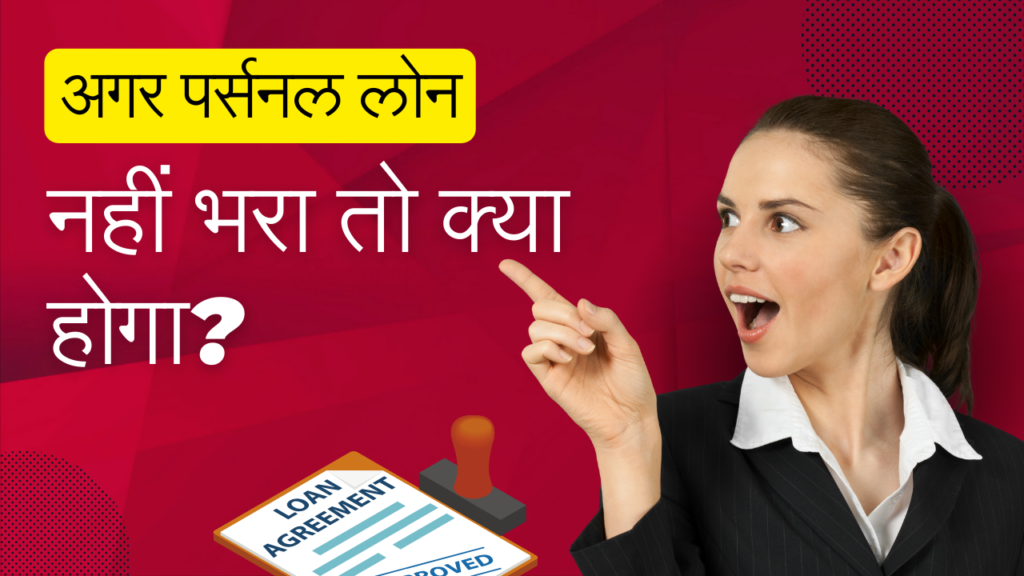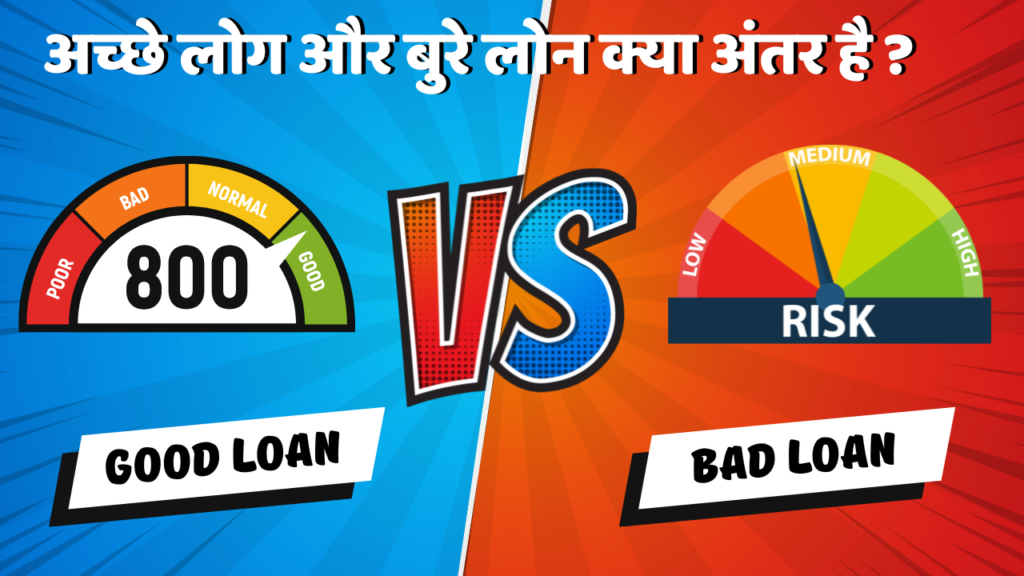Do you feel that it becomes very tough to repay your loans if you have lent money from multiple sources, or have you found yourself juggling EMI dates and interest rates of different loans? If yes, a Debt Consolidation Loan will surely come as a savior. It is a loan that helps you merge your existing loans. Through this, you can take a new loan to repay all your debts, thereby paying only one EMI.
The main purpose of this loan is to reduce your financial burden and make your financial position stable. For example, if you have credit card dues, personal loans, and other small borrowings, then you can combine all these and repay them through a single loan. After this, you have to pay only one interest rate and one EMI, which makes your budget and planning easier.
However, every coin has two sides, and the same goes for Debt Consolidation Loans. Its advantages are that it makes your financial management easier, reduces the interest charged on multiple loans, makes timely payments can also improve your credit score. But its disadvantages are also worth noting, such as the possibility of paying interest for a longer period, additional fees, and lack of discipline can lead to a financial crisis again.
In this article, we are going to provide you with complete information about the Debt Consolidation Loan, along with its advantages, disadvantages, and what things should be kept in mind before taking it. If you also looking for an easy and effective way to manage your debts, then this article is going to prove very helpful for you.
What is a Debt Consolidation Loan?
A debt consolidation loan is that financial solution in that you take a new loan to pay off all your previous debts. Its main use is to club all the debts you owe in one place, which means having to pay just one EMI and just one rate of interest each month.
For instance, if you have credit card dues, personal loans, and other debts, you can combine all of them and repay them through a debt consolidation loan. This makes it easy to manage the monthly installments and helps to relieve high interest rates. This is a beneficial loan for those who are finding it difficult to repay and are burdened with multiple loans.
Why should you take a debt consolidation loan?
If you have different loans, such as credit card dues, personal loans, or other borrowings and you are not able to manage the EMIs and the due dates of the different loans, then taking a debt consolidation loan can prove to be of great help to you. This loan helps you repay all the different debts by consolidating them. Through this, you pay only one EMI every month, which makes financial management easier.
Apart from this, Debt Consolidation Loan can give you relief from high interest rates charged on different loans. If you make timely payments, it also helps in improving your credit score. This loan is a good option for those who want to manage their debts better and reduce their financial burden.
How does a Debt Consolidation Loan work?
The working of a Debt Consolidation Loan is very simple. If you have multiple debts, such as credit card dues, personal loans, or other small borrowings, this loan helps you pay off all of them. You pay off all the existing debts through this loan and then pay EMIs of just one loan.
Imagine three debts-say, a credit card debt at 15% interest rate, a personal loan debt at 12% interest rate, and another debt at 10% interest rate. All of them have different EMIs and dates of payment, and you are finding it too cumbersome to manage. That’s where a Debt Consolidation Loan comes in, allowing you to consolidate all these loans into one new loan which generally has a lower rate of interest.
Your bank or financial institution pays off your existing debt and you have to pay only a monthly EMI of that one loan. This does not only ease the managing of debt but also saves time and money. This is particularly useful for individuals who are under stress from multiple debts and want their financial lives to be easier.
Who can take a Debt Consolidation Loan?
People who usually take it are in the following situations:
- If you have a credit card, personal loan, or other type of debt and are finding it difficult to pay different EMIs and interest rates every month.
- People who have high interest rates on their debts can convert them into a single loan with a lower interest rate by taking a Debt Consolidation Loan.
- If you are finding it difficult to manage different loan repayment dates and terms, then this loan can be helpful for you.
- People who have a bad credit score and want to improve it by paying all their debts on time.
- If you are feeling mentally stressed due to multiple debts, then a Debt Consolidation Loan can make your financial life easier.
How to apply for a Debt Consolidation Loan?
You can complete it in a few easy steps:
- Begin with a list of all the existing debts, including the outstanding amounts, interest rates, and monthly EMIs. This will help you decide whether a Debt Consolidation Loan is right for you.
- Debt Consolidation Loans are offered by many banks and financial institutions. Compare the interest rates, terms, and features of each to find the best for you.
- Gather the required documents for the application. These may include identity proof (Aadhaar card, PAN card), income proof (salary slip or ITR), loan details, and bank statements.
- Visit the website of the concerned bank or institution or visit their branch and fill out the Debt Consolidation Loan application form.
- Your credit score is important for loan approval. A good credit score will help you get a loan at a better interest rate.
- Once the loan application is filled out, the bank will review the documents and your loan details. After considering and clearing all checks of approval, the bank pays for repaying your existing debts and you will only repay the EMI of a Debt Consolidation Loan.
- Pay EMI every month once you have taken that loan. This way your credit score would improve and the loan can be easily taken afterward.
What are the things to keep in mind while taking a Consolidation Loan?
There are some important things to keep in mind while taking this loan so that you can use it properly.
- Compare the interest rates of various banks and financial institutions before applying for a Debt Consolidation Loan. Ensure that the rate of interest on the loan is affordable for you.
- At the time of applying for the loan, necessary documents like an identity card, proof of income, and other loan details must be kept ready. This will make the application process complete quickly.
- Understand the loan terms, such as the repayment period, fees, and interest rates thoroughly. Make sure you do not get any hidden charges or additional costs.
- Approval of a Debt Consolidation Loan may depend on your credit score. Make sure your credit score is good so that you can get a better interest rate.
- The purpose of a debt consolidation loan should be only to repay the debt, not to increase new expenses. If you get trapped in new debt by taking a loan, your situation can worsen.
- Keeping in mind your monthly income and expenses, estimate the EMI amount of the loan correctly. The burden of EMI should not be heavy on your budget.
- After taking a loan, make it a habit to repay the EMI on time. This will improve your credit score and prevent financial problems in the future.
Is a Debt Consolidation Loan right for you?
If you feel the burden of many loans and are finding it tough to manage them, a debt consolidation loan might prove to be right for you. It takes all your loans together to form one loan, so you pay only one EMI.
If the interest rates on your loans are high, then through this loan you can get a lower interest rate, which can save you money.
But, this loan is right only if you understand your financial situation properly and have the discipline to pay the EMIs on time. If you use this loan for new expenses or do not manage it properly, it can backfire on you. Therefore, it is important to properly assess your needs and financial situation before taking a Debt Consolidation Loan.
What is the difference between a Consolidation Loan and a Balance Transfer?
There are some differences between the two:
- Debt Consolidation Loan:
Here, you take a new loan by clubbing all your debts together. This loan pays off all the old debts and you have to pay only one EMI. With this loan, you can consolidate your debts in one place and the interest rate may also be reduced.
- Balance Transfer:
This is the process of transferring your credit card or loan dues to another bank or financial institution for you to enjoy a lesser interest rate. It is a transfer of your debt from one bank to another, but the amount does not reduce.
Key Differences:
- In Debt Consolidation Loan, you take a new loan to repay the old debts, while in balance transfer, you transfer the old loan to another bank.
- With a Dea bt Consolidation Loan, you get a new loan, while in a balance transfer only the loan is transferred.
What are the benefits of taking a Debt Consolidation Loan?
There are many benefits of taking this loan, which can help you manage your debt:
- Through a Debt Consolidation Loan, you pay EMI of only one loan by combining all the debts. This saves you from having to remember multiple debts and their different dates.
- The interest rate of this loan can usually be lower than the interest rate of your existing debts, which can save you money.
- When you have multiple debts, managing them can prove to be difficult. Repaying all the debts through one loan can reduce your stress and give you an easy plan.
- Paying a single EMI on time can improve your credit score, as you repay your debts properly.
- Paying one loan makes it easier for you to track and manage debts.
What are the disadvantages of taking a Debt Consolidation Loan?
There are many advantages to taking this loan, but it can also have some disadvantages:
- If you keep the tenure of the Debt Consolidation Loan longer, your EMI may be less, but the total interest may be higher. This means that you will be repaying the loan for a longer period and will pay more money overall.
- Sometimes there are some additional fees or charges on taking a loan, such as processing fees or closing charges. These can increase your expenses.
- If you neglect to pay the EMI of the Debt Consolidation Loan, your credit rating may be adversely affected and it may prove difficult for you to get a loan in the future.
- This loan only combines the debts, but you do not get any way to reduce your debt in it. You simply replace the old debts with a new loan, but the total amount of the loan remains the same.
- If you use the Consolidation Loan for new expenses instead of just repaying the old debt, your financial situation may worsen.
Conclusion:
A consolidation loan can be a financial tool for individuals who owe several small debts and can repay them conveniently by lumping them together in one place. It has many advantages, including making paying off debts easier, interest rate reductions, and even improving one’s credit scores.
However, at the same time, there are such drawbacks as higher total interest and some other costs such as additional fees or charges when the payment period stretches over a considerable period. Additionally, improper use of loan terms can sometimes deteriorate the financial conditions of the individuals.
So, before applying for a debt consolidation loan, it is necessary to know whether or not this would be the best for you. It’s crucial to assess your current financial condition and the loan terms, interest rates, and conditions of such a loan. So, if used wisely, it can become a useful solution for you.
Frequently Asked Questions (FAQ’s)
Ans: Generally, it requires ID, address proof, proof of income, and a few details about your debts in place (credit cards, loan details).
Ans: If you pay the EMI of the Debt Consolidation in time, your credit score may improve; however, if you miss it, then also that might have a negative effect.
Ans: In a balance transfer, you move your old debt to a new bank, whereas in the case of a Debt Consolidation Loan, you join all the debts into one loan. Both these options have been for paying off debt at a lower interest rate, but the way is different.
Ans: The interest rate may vary according to the bank and financial institution, but usually it depends on your credit history and loan amount. Usually, it can be lower than the interest rate of existing loans.
Ans: Yes, a Debt Consolidation Loan combines your debts into an easy and single EMI, making loan repayment easy and convenient.













